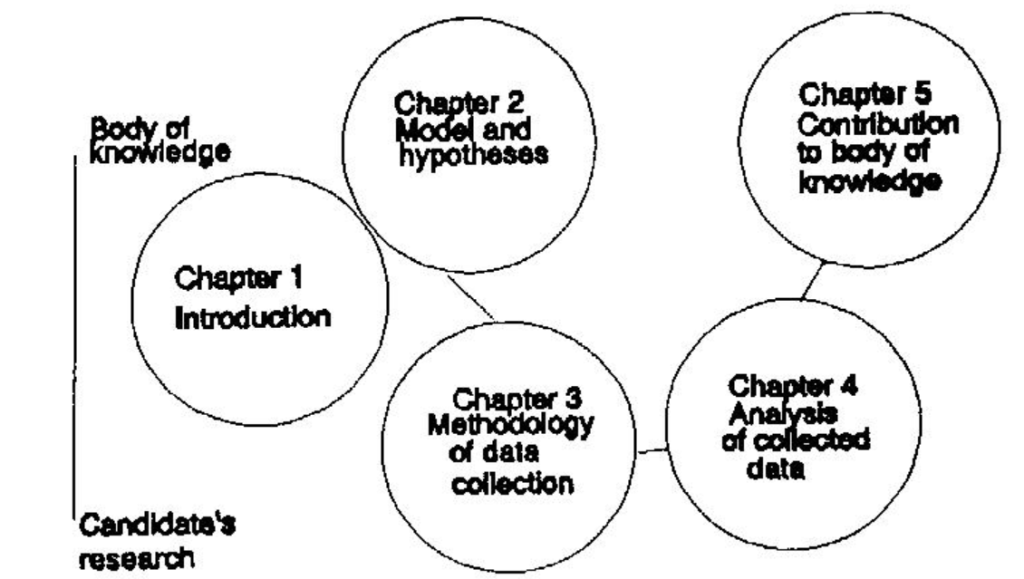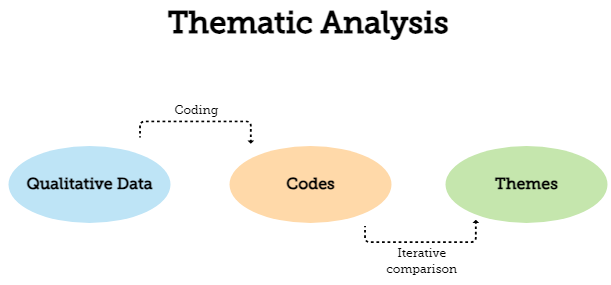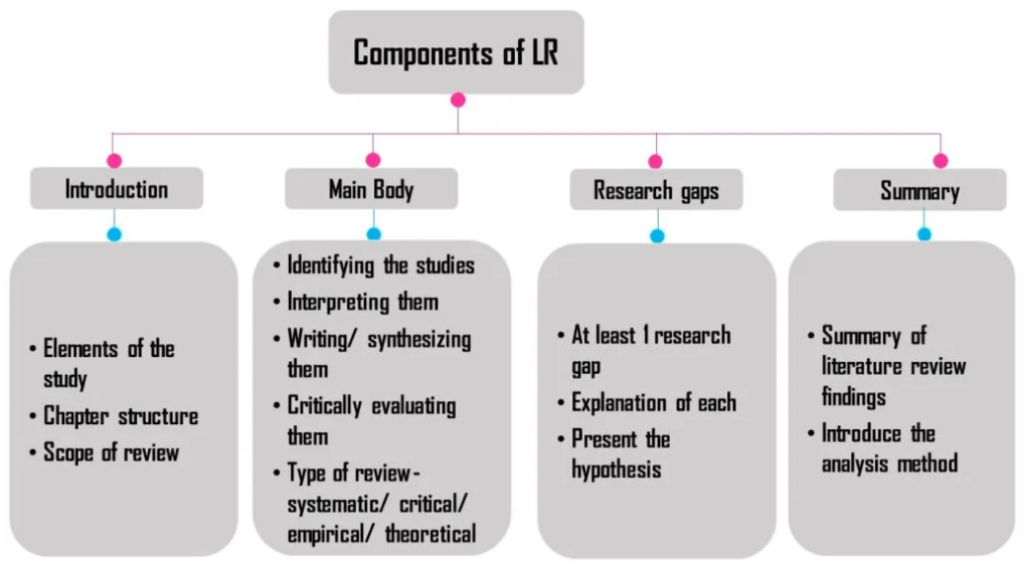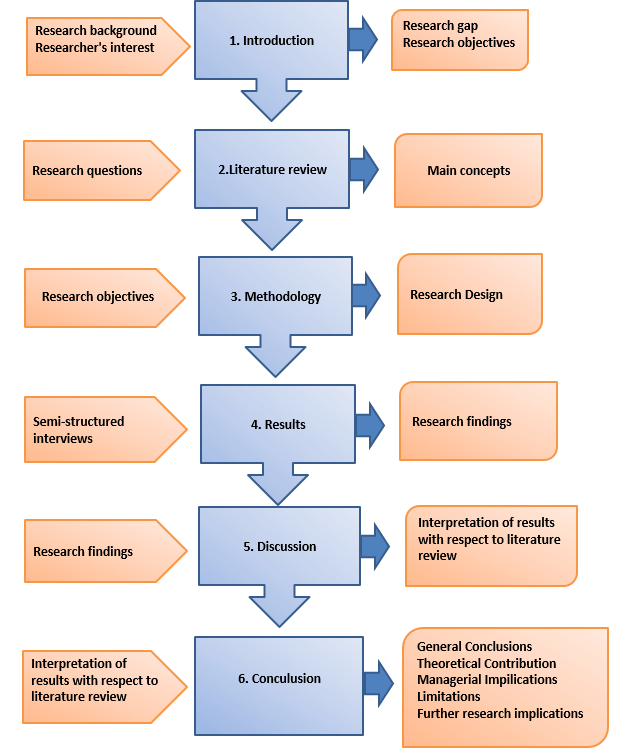
Table of Contents
The nursing thesis methodology is the heart of your research, outlining the systematic approach you’ll use to answer your research question. It’s not merely a dry list of procedures; it’s a compelling narrative that showcases the rigor and clarity of your investigation. Crafting an engaging nursing thesis methodology demands meticulous planning, a deep understanding of research principles, and a commitment to clarity and precision.
This article will provide comprehensive guidelines to help you craft a compelling and effective nursing thesis methodology section.
Understanding the Essence of the Nursing Thesis Methodology
The nursing thesis methodology is the blueprint for your research, guiding the reader through your journey of inquiry. It outlines the specific methods you’ll employ to collect and analyze data, ensuring the scientific validity and ethical integrity of your study. It’s a roadmap that ensures your research is reproducible and credible, allowing other researchers to follow your steps and build upon your findings.
Key Components of a Powerful Nursing Thesis Methodology
- Research Design: This section defines the overall structure of your study. Common research designs in nursing include:
- Quantitative Research: Employs numerical data, statistical analysis, and structured methods like surveys or experiments to test hypotheses.
- Qualitative Research: Focuses on understanding experiences, perspectives, and meanings through methods like interviews, focus groups, or observations.
- Mixed Methods Research: Combines quantitative and qualitative approaches, offering a more comprehensive understanding of the research problem.
- Population and Sampling: This section defines the target population of your study and the specific method you used to select participants. Key considerations include:
- Inclusion and Exclusion Criteria: Defines the characteristics of participants who qualify for the study, ensuring a relevant and representative sample.
- Sampling Techniques: Describes how you selected participants from the target population, including:
- Probability Sampling: Randomly selects participants, ensuring a representative sample.
- Non-Probability Sampling: Utilizes non-random methods like convenience sampling or purposive sampling.
- Data Collection Methods: This section details the specific instruments and procedures you’ll use to gather data. Choose methods that align with your research question and design, including:
- Quantitative Methods:
- Surveys: Structured questionnaires used to gather data from a large sample.
- Experiments: Manipulate variables to observe their effects.
- Qualitative Methods:
- Interviews: In-depth conversations to explore participants’ experiences and perspectives.
- Focus Groups: Gather data from a group discussion facilitated by a researcher.
- Observations: Observe and record behaviors, interactions, and events in a specific setting.
- Quantitative Methods:
- Data Analysis: This section describes how you’ll analyze the data you collect. The methods should match your research design:
- Quantitative Methods: Employ statistical analysis techniques to interpret numerical data, often using software like SPSS or R.
- Qualitative Methods: Analyze textual or visual data to identify themes, patterns, and insights. Common qualitative data analysis techniques include thematic analysis, content analysis, and grounded theory.
- Ethical Considerations: This section addresses the ethical implications of your research, demonstrating your commitment to participant rights and well-being. Key elements include:
- Informed Consent: Participants must be fully informed about the study’s purpose, procedures, and potential risks before agreeing to participate.
- Confidentiality and Privacy: Protecting participants’ identities and ensuring that their personal information is handled securely.
- Data Security: Safeguarding collected data from unauthorized access or misuse.

Tips for Crafting a Stellar Nursing Thesis Methodology
1. Clear and Concise Language: Use precise terminology and avoid jargon. Present information in a straightforward manner, making your nursing thesis methodology easily understandable for readers from diverse backgrounds.
2. Logical Flow and Structure: Organize the nursing thesis methodology section in a logical sequence, guiding the reader through your research process. Clearly connect each section to the previous one, demonstrating the coherence of your overall approach.
3. Justification and Rationale: Explain why you chose specific methods, research designs, and data analysis techniques. Justify your choices based on existing literature and your research question, demonstrating the appropriateness and validity of your approach.
4. Transparency and Reproducibility: Provide detailed descriptions of your procedures, instruments, and analysis techniques. Allow other researchers to replicate your study and verify your findings.
5. Avoid Overly Technical Language: While maintaining scientific accuracy, aim for accessibility. Use examples and illustrations to clarify complex concepts, making your nursing thesis methodology more engaging and understandable.
6. Include a Timeline: Provide a realistic timeline for the key stages of your research, demonstrating the feasibility and practicality of your approach.
7. Embrace Visual Aids: Utilize tables, figures, diagrams, and flowcharts to enhance clarity and visual appeal. These aids can effectively communicate complex information, making the methodology more engaging and accessible.
8. Seek Feedback and Revise: Share your nursing thesis methodology with colleagues, mentors, and experts in the field. Incorporate their feedback and refine your writing to ensure clarity, accuracy, and completeness.
9. Demonstrate Expertise and Passion: Your methodology should reflect your knowledge of research principles and your dedication to the topic. Express your enthusiasm for the research process, showcasing your commitment to answering your research question effectively.
Examples of Engaging Nursing Thesis Methodologies
- Quantitative Study: A study investigating the effectiveness of a new intervention to improve medication adherence among patients with chronic conditions might use a randomized controlled trial design, employing pre- and post-intervention surveys to measure adherence rates. The methodology section would detail the specific intervention protocol, the data collection instruments, the statistical analysis plan, and the ethical considerations regarding informed consent and data security.
- Qualitative Study: A study exploring the lived experiences of nurses caring for patients with advanced dementia might employ semi-structured interviews with a purposive sample of nurses. The methodology section would describe the interview guide, the data analysis methods using thematic analysis, and the steps taken to ensure participant confidentiality and anonymity.
- Mixed Methods Study
This study will employ a mixed methods approach, combining quantitative and qualitative data to comprehensively explore the impact of [intervention/program] on [target population/outcome]. This approach allows for a deeper understanding of the complex relationship between the intervention and its effects by integrating both objective and subjective perspectives.
Quantitative Phase
- Design: A [specify design, e.g., quasi-experimental, longitudinal, etc.] design will be employed.
- Participants: [Specify the sample size and recruitment procedures].
- Data Collection: [Specify the instruments used to collect quantitative data, e.g., standardized questionnaires, physiological measures, etc.].
- Data Analysis: Data will be analyzed using [specify statistical techniques, e.g., t-tests, ANOVA, regression analysis, etc.].
Qualitative Phase
- Design: A [specify design, e.g., phenomenological, grounded theory, etc.] design will be utilized to explore the lived experiences of participants.
- Participants: [Specify the sample size and recruitment procedures]. [Note: May be the same as the quantitative participants or a separate group].
- Data Collection: [Specify the data collection methods, e.g., semi-structured interviews, focus groups, observation, etc.].
- Data Analysis: Qualitative data will be analyzed using [specify qualitative data analysis techniques, e.g., thematic analysis, content analysis, etc.].

Integration
- Mixed methods approach: Data from both quantitative and qualitative phases will be integrated using [specify integration method, e.g., convergent parallel design, explanatory sequential design, etc.]. This will allow for a richer understanding of the relationship between the intervention and its effects.
- Triangulation: Findings from both phases will be compared and contrasted to provide a comprehensive understanding of the research question.
Ethical Considerations
- All participants will be informed of the study’s purpose, risks, and benefits.
- Informed consent will be obtained from all participants before data collection.
- Confidentiality of all participant data will be maintained.
- The study will adhere to ethical guidelines for research involving human subjects.
Limitations
- [List any limitations of the study, e.g., sample size, generalizability of findings, etc.].
Expected Outcomes
This study aims to provide valuable insights into the impact of [intervention/program] on [target population/outcome]. The findings will be used to inform clinical practice, policy development, and future research.
Note: This is a template for a nursing thesis methodology. You will need to adapt it to your specific research question, study design, and target population. Please ensure you consult your advisor and relevant literature for guidance and support.
The Importance of the Nursing Thesis Methodology
The nursing thesis methodology is crucial for several reasons:
- Ensures Scientific Rigor: A well-crafted methodology demonstrates the scientific validity of your research, ensuring that your findings are reliable and trustworthy.
- Guides Research Execution: It provides a clear roadmap for conducting the study, minimizing errors and ensuring that you collect the necessary data to answer your research question.
- Demonstrates Your Expertise: A thorough and engaging methodology showcases your understanding of research principles and your ability to design and conduct a credible study.
- Enables Reproducibility: It provides a clear blueprint for others to replicate your study, allowing for verification of your findings and contributing to the advancement of knowledge in the field.
Common Pitfalls to Avoid in Writing a Nursing Thesis Methodology
While the nursing thesis methodology serves as the backbone of your research, it’s also susceptible to common pitfalls that can undermine its clarity, rigor, and overall effectiveness. Avoiding these pitfalls is crucial for presenting a compelling and convincing nursing thesis methodology that supports your research findings.
1. Lack of Clarity and Conciseness:
- Overly Complex Language: Using overly technical jargon or convoluted sentence structures can confuse readers and obscure the essence of your methods.
- Insufficient Detail: Providing too little information about your procedures, instruments, or data analysis methods can make it difficult for readers to understand and evaluate your research.
- Rambling or Digressing: Failing to maintain a focused and direct approach can lead to a methodology that is disjointed and difficult to follow.
2. Inadequate Justification and Rationale:
- Unjustified Methodological Choices: Simply stating the methods you used without providing a clear rationale for their selection can weaken the credibility of your study.
- Insufficient Literature Review: Failing to adequately review existing literature to support your chosen methods can raise questions about the validity and appropriateness of your approach.

3. Ethical Oversights:
- Incomplete or Inadequate Informed Consent: Not providing participants with clear and comprehensive information about the study, risks, and benefits can raise ethical concerns.
- Insufficient Data Security Measures: Failing to adequately address data security measures, such as participant confidentiality and data storage protocols, can lead to ethical breaches and compromise participant privacy.
4. Lack of Transparency and Reproducibility:
- Insufficient Methodological Detail: Omitting key details about your procedures, instruments, or data analysis techniques can make it difficult for other researchers to replicate your study.
- Overreliance on “Standard Procedures”: Assuming that all readers are familiar with specific methods or techniques without providing clear explanations can hinder the reproducibility of your research.
5. Ignoring the Needs of Your Audience:
- Failing to Consider Reader Background: Assuming that all readers have the same level of knowledge and expertise can lead to a methodology that is inaccessible to a wider audience.
- Overlooking the Importance of Engagement: Presenting the nursing thesis methodology as a dry, technical document can disengage readers and fail to effectively communicate the significance of your research.
6. Insufficient Time Management:
- Overly Ambitious Timeline: Setting unrealistic deadlines can compromise the quality of your methodology and the overall research project.
- Inadequate Planning: Failing to plan the research process effectively can lead to time constraints and hinder your ability to adequately develop the methodology section.
7. Neglecting to Seek Feedback:
- Isolation from Experts: Failing to solicit feedback from mentors, colleagues, or experts in the field can result in a methodology that is flawed or insufficiently developed.
- Overconfidence in Your Own Work: Avoiding critical review of your methodology can lead to blind spots and missed opportunities for improvement.
The Importance of Avoiding These Pitfalls:
By diligently avoiding these common pitfalls, you can ensure that your nursing thesis methodology is:
- Clear and Concise: Easy to understand and follow.
- Rigorous and Valid: Based on sound research principles and supported by existing literature.
- Ethical and Responsible: Protecting participant rights and ensuring data security.
- Transparent and Reproducible: Allowing other researchers to verify your findings and build upon your work.
- Engaging and Accessible: Communicating the significance of your research to a diverse audience.
Remember that a well-crafted nursing thesis methodology is not just about outlining procedures; it’s about communicating your research approach in a clear, compelling, and convincing manner. Addressing the potential pitfalls discussed above will enable you to create a nursing thesis methodology that serves as a strong foundation for your entire paper, contributing to the advancement of nursing knowledge and practice.
Frequently Asked Questions about Nursing Thesis Methodology
General Methodology:
- What are the different types of research methodologies in nursing?
- This question delves into the common approaches like quantitative, qualitative, and mixed methods.
- How do I choose the best methodology for my nursing thesis?
- This is about aligning the research question, desired outcomes, and the nature of the research topic with the appropriate methodology.
- What are the key elements of a strong research methodology section in a nursing thesis?
- This covers the components like research design, population and sample selection, data collection methods, data analysis techniques, and ethical considerations.
- What are the common research designs used in nursing studies?
- This could explore designs like experimental, quasi-experimental, correlational, descriptive, and ethnographic studies.
- How do I ensure my research is ethical and complies with relevant guidelines?
- This covers obtaining informed consent, protecting participant privacy, data security, and adhering to ethical research principles.
Data Collection and Analysis:
- What are the most common data collection methods in nursing research?
- This might cover questionnaires, interviews, focus groups, observations, physiological measurements, and document review.
- How do I choose the most appropriate data collection method for my study?
- This involves considering the research question, feasibility, and potential biases of each method.
- What are the different types of data analysis techniques used in nursing research?
- This could cover statistical analysis (for quantitative data), thematic analysis (for qualitative data), and mixed methods analysis.
- How do I interpret and present my research findings effectively?
- This involves understanding the significance of the results, drawing meaningful conclusions, and presenting them in a clear and concise manner.
Specific Methodologies:
- How do I conduct a quantitative research study in nursing?
- This involves understanding variables, hypothesis testing, statistical analysis, and data interpretation in a quantitative context.
- How do I conduct a qualitative research study in nursing?
- This involves choosing qualitative approaches like phenomenology, grounded theory, or ethnography, conducting interviews or focus groups, and analyzing data for themes and patterns.
- How do I conduct a mixed methods research study in nursing?
- This covers combining quantitative and qualitative approaches, integrating data from both types, and drawing conclusions from the combined findings.
Other Considerations:
- How do I ensure my nursing thesis methodology is rigorous and credible?
- This emphasizes the importance of using validated instruments, established research procedures, and minimizing bias.
- How do I write a strong methodology chapter for my nursing thesis?
- This involves presenting the chosen methodology, justifying the choices, explaining procedures, and outlining the expected outcomes.
- What are some common pitfalls to avoid in nursing thesis methodology?
- This could address issues like insufficient sample size, weak research design, lack of objectivity, or failure to address ethical considerations.
This list provides a broad overview of common questions. Specific questions might still arise depending on the particular topic and research design of your nursing thesis.

The Foundation of a Powerful Nursing Thesis
Crafting an engaging and effective nursing thesis methodology is essential for achieving a successful and impactful research project. By adhering to these guidelines, you can develop a methodology that is clear, concise, compelling, and reflective of your research expertise. Remember that your methodology is the foundation of your thesis, guiding you toward meaningful findings and contributing valuable insights to the nursing profession.
Get Customized Nursing Thesis Writing Service
Crafting an outstanding nursing thesis methodology section might still be quite challenging. The best way to navigate the task is with customized nursing thesis writing service from Nursing Papers. We offer professional nursing thesis help, covering topic suggestion, thesis writing, proofreading, editing, formatting and plagiarism removal. Besides, our experienced writers can also assist you with nursing essays, research papers, case studies and dissertations.







